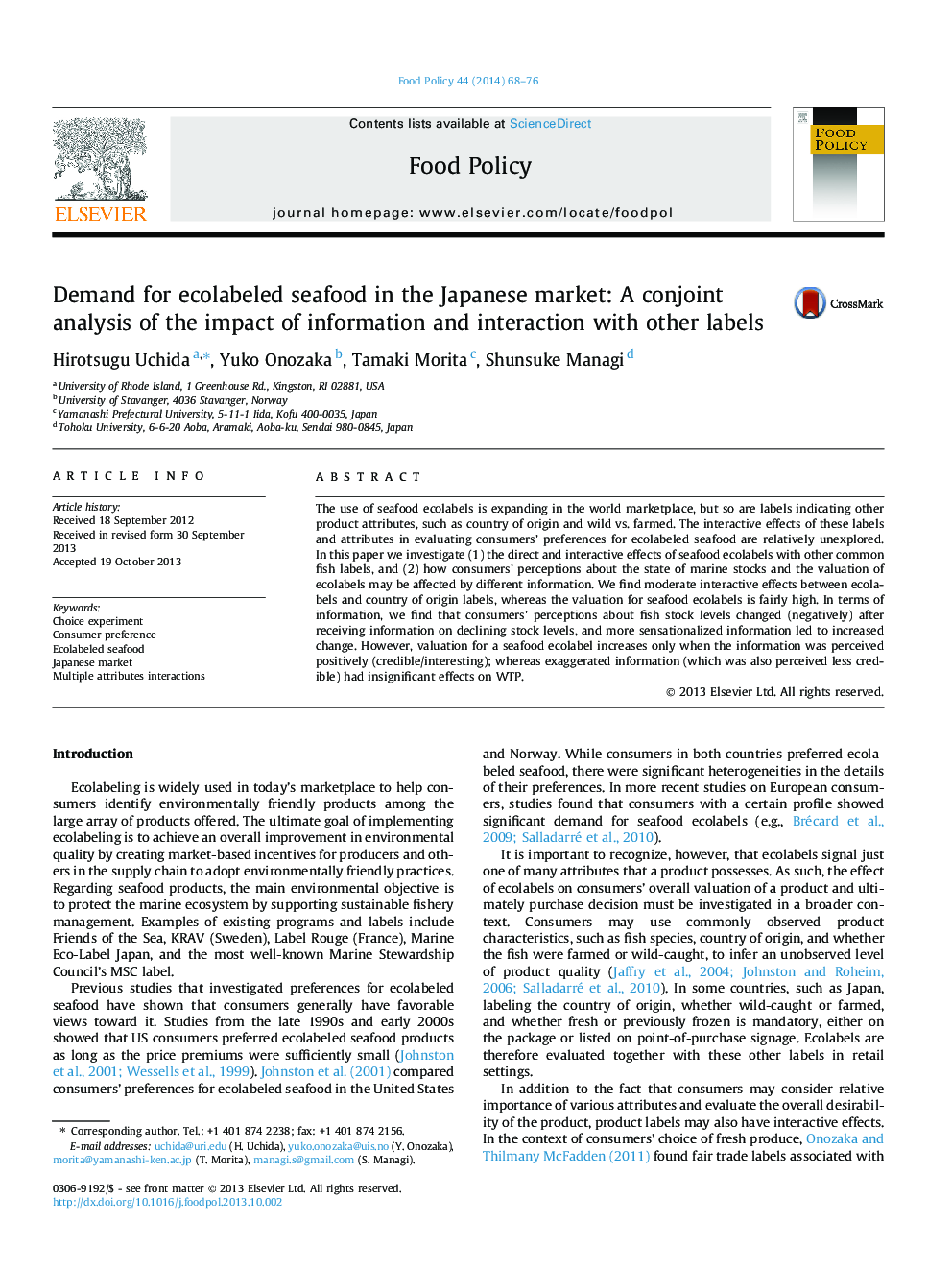| Article ID | Journal | Published Year | Pages | File Type |
|---|---|---|---|---|
| 5070557 | Food Policy | 2014 | 9 Pages |
Abstract
The use of seafood ecolabels is expanding in the world marketplace, but so are labels indicating other product attributes, such as country of origin and wild vs. farmed. The interactive effects of these labels and attributes in evaluating consumers' preferences for ecolabeled seafood are relatively unexplored. In this paper we investigate (1) the direct and interactive effects of seafood ecolabels with other common fish labels, and (2) how consumers' perceptions about the state of marine stocks and the valuation of ecolabels may be affected by different information. We find moderate interactive effects between ecolabels and country of origin labels, whereas the valuation for seafood ecolabels is fairly high. In terms of information, we find that consumers' perceptions about fish stock levels changed (negatively) after receiving information on declining stock levels, and more sensationalized information led to increased change. However, valuation for a seafood ecolabel increases only when the information was perceived positively (credible/interesting); whereas exaggerated information (which was also perceived less credible) had insignificant effects on WTP.
Keywords
Related Topics
Life Sciences
Agricultural and Biological Sciences
Food Science
Authors
Hirotsugu Uchida, Yuko Onozaka, Tamaki Morita, Shunsuke Managi,
